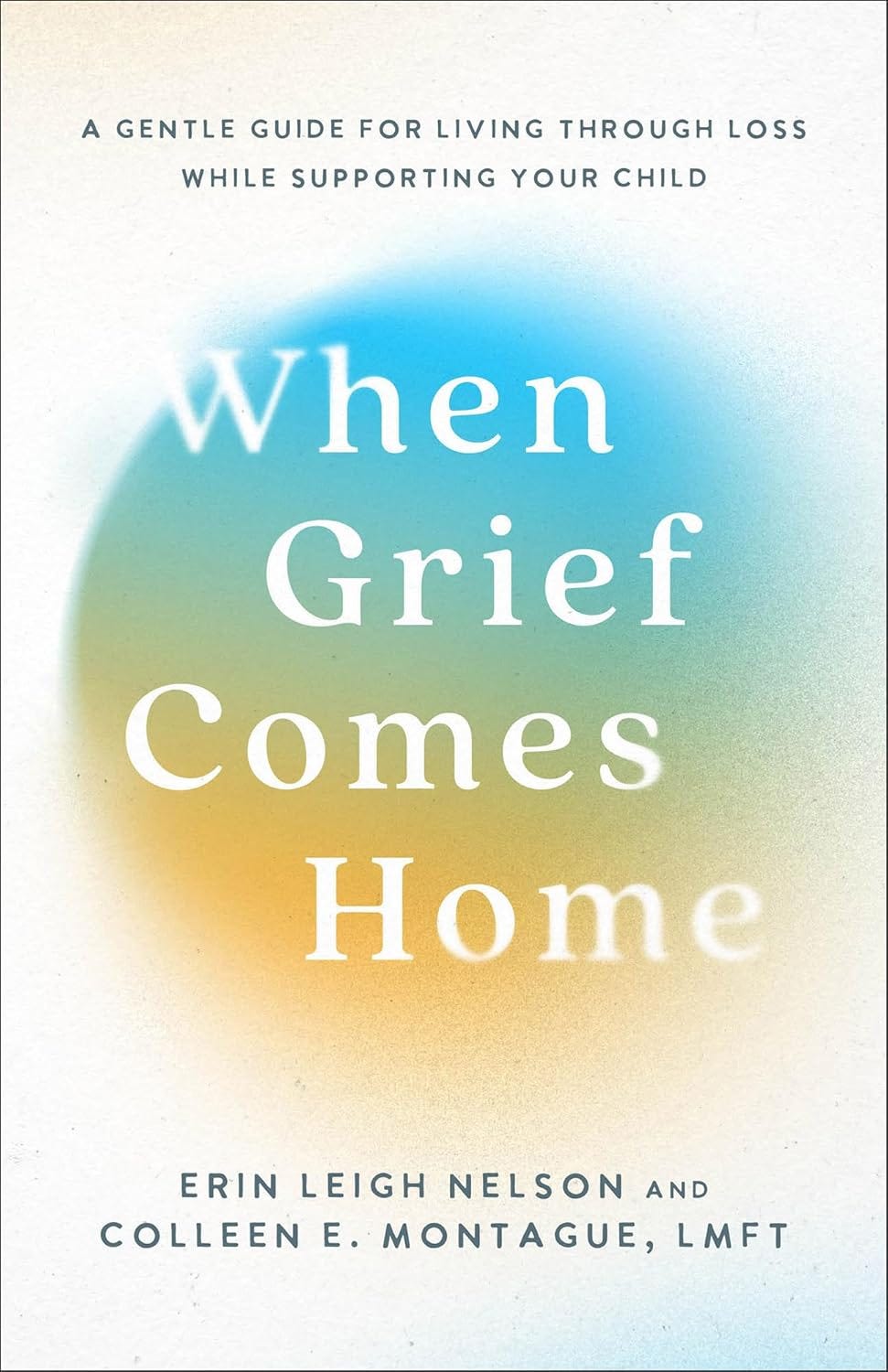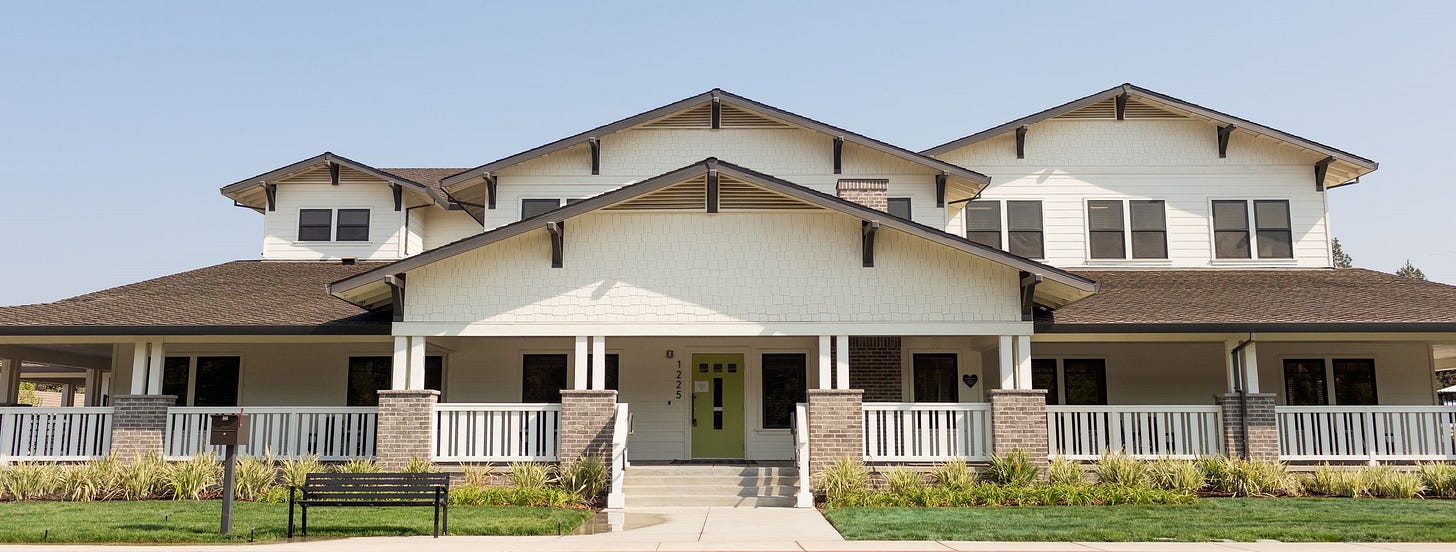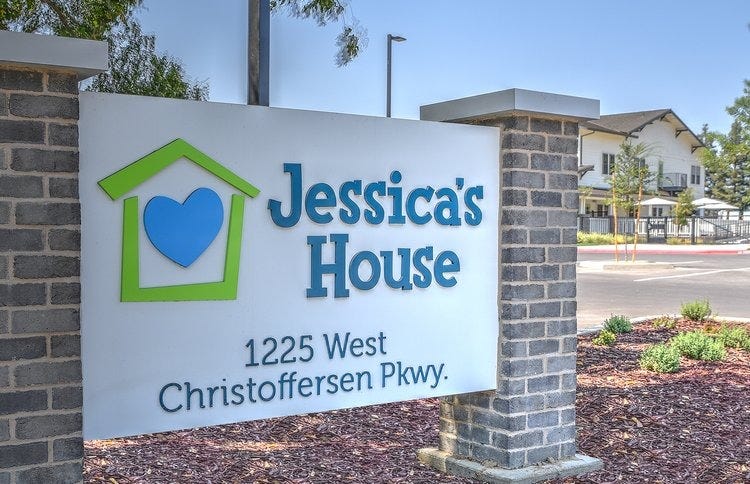How to live a life after loss
A Review of "When Grief Comes Home: A Gentle Guide for Living Through Loss While Supporting Your Child"
“Grief never ends because love never ends. You metabolize your loss over time…”
If this is so, then When Grief Comes Home: A Gentle Guide for Living Through Loss While Supporting Your Child by Jessica’s House Directors Erin Nelson and Colleen Montague is the book that can help you process what you're tasting as you begin to swallow the bitter pill of grief.
But first, what is Jessica’s House?
Jessica’s House seeks to support “children who have experienced the death of a parent or sibling by providing a safe place for healing and expression. The death of a parent or sibling before the age of 18 is known to be one of the most traumatic and challenging experiences for children and adolescents and is associated with a range of adverse outcomes. Unsupported grief carries many risk factors, which is why Jessica’s House is focused on providing opportunities for connection and shared experiences through our unique peer support groups.”
Jessica’s House began in 2012 to bring grief support to the community through peer support groups for children grieving a loss. In 2021, Jessica’s House opened its new permanent home in Turlock.
There, 800 individuals from 38 surrounding cities have the option to participate in one of nine specialized peer support groups as well as a school group program at various school sites in Stanislaus and Merced counties, including in Hughson Unified School District. Grief Support Groups include parent loss, sibling loss, hope after suicide, hope after homicide, hope after accidental overdose, COVID-19 loss, grandparent loss, HeartStrings (pregnancy loss, infant loss and stillbirth), and groups offered in Spanish.
The tone of everything from the generous staff and volunteers is gentle, kind, and expansive, helping the speaker make space by modeling the action of pausing, taking time, and listening.
Decades of learning how to work with children and their parents, decades of facing personal tragedy and loss, has led to this masterpiece of not so much a self-help book, as a companion and guide through the process of grieving in book form, as if they distilled all those talks and actions from those peer support groups and presented them here to take alongside your grief, something to help it go down.
When Grief Comes Home is a book to help put into words the experience you are facing in grief.
When I receive a book to review, I approach it with the goal of speed, get it read, get the review read, get it posted.
–– This book cannot be read that way. Not if you have known grief.
I read, I sat, I waited to be ready to read again.
Chapter Four: “When You are Grieving Your Child”
“Studies on bereaved parents show that yearning is the primary emotional response.”
Yes.
Chapter Three: “When You are Grieving Your Partner”
“You may feel untethered.”
Yes. This is the exact word my widowed friend used to describe her experience a year after his death.
Learn the vocabulary.
Experience the sense that others have trod this path before.
Gain some coping skills expertly described – I know, I’ve tried teaching and writing out how to practice deep breathing. They do it better.
Try out some low-effort/big-impact activities for you and your child.
Reflect with questions, pause with a poem, “benediction” at the end of each chapter.
“My family has known grief,” I tell strangers when I need to introduce something I am about to say related to my daughter Celeste, who died during birth from anencephaly, after months of waiting for her birth and death.
I was lucky. Because my son had already come so harrowingly close to dying, because they could see I was not doing well, the hospital connected me with a counselor from palliative care who taught me the skills to face those dark emotions, walk through that forest of the unknown, discover the treasures therein, and come out the other another side, marked by the experience –yes, but made new through it as well.
Most people do not have the support I had.
And Jessica’s House is here. We did not access their services. I learned from a Child Life Specialist named Adrian, who sat on the hospital room floor with my children while Celeste lay without the breath of life in her and painted rocks with them, making space for their grief, however, they might process it. Adrian talked me through how to talk to my children.
Most people do not have the support I have.
And even though centers like Jessica’s House are growing in number and services are free, they are still too little known and may still be too far.
Now, their wisdom is here, a book to help you through the process of grief, to understand it in all its different iterations. It begins by identifying our unique grief, whether for a partner or child, and goes on to help the reader process the many steps and challenges of grief for both the adult reader and his or her child.
I want every grieving parent to have this book.
Even now, on what would have been my daughter’s eighth birthday (March 2), I realize as I finished Chapter 16, “Enlarging Your Soul” that I have some work to do today to get back in touch with that place of feeling in my heart, a place I often wish I could silence because of its intensity, both in joy and sorrow.
Please consider picking up a copy today, either for yourself, for someone who you love who has lost, or to have at the ready should you find yourself in need of a way to show love to someone you love.
When Grief Comes Home: A Gentle Guide for Living Through Loss While Supporting Your Child is sold at all the major booksellers. Proceeds will go directly to the support of Jessica’s House.





